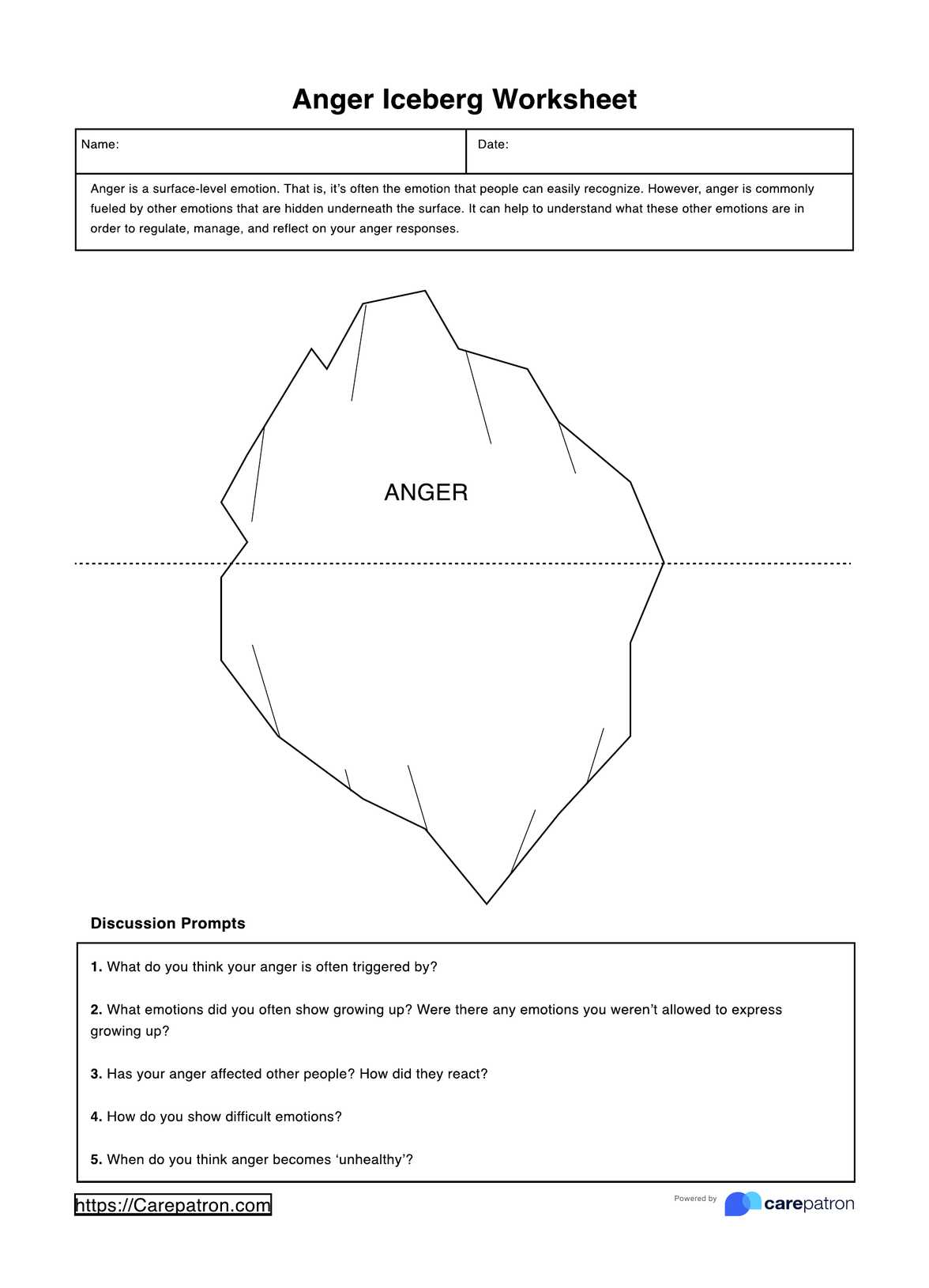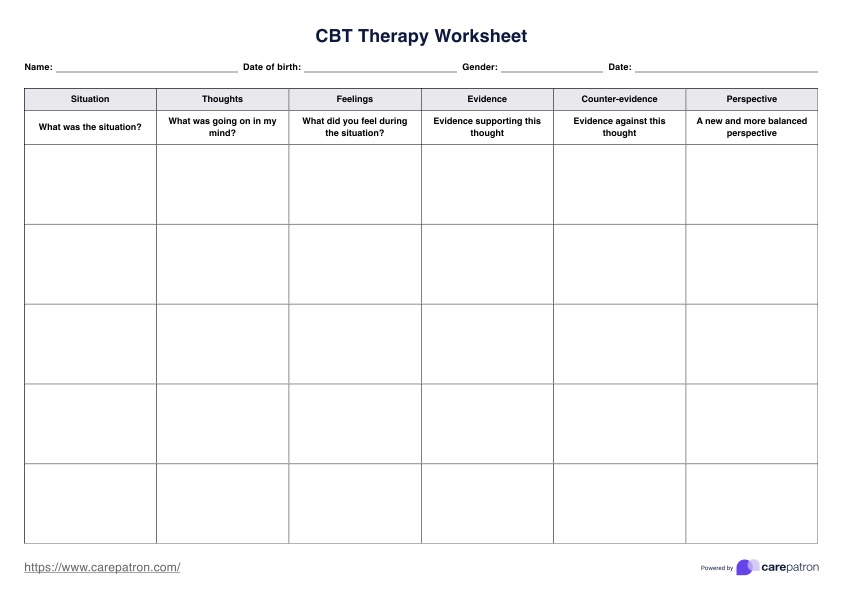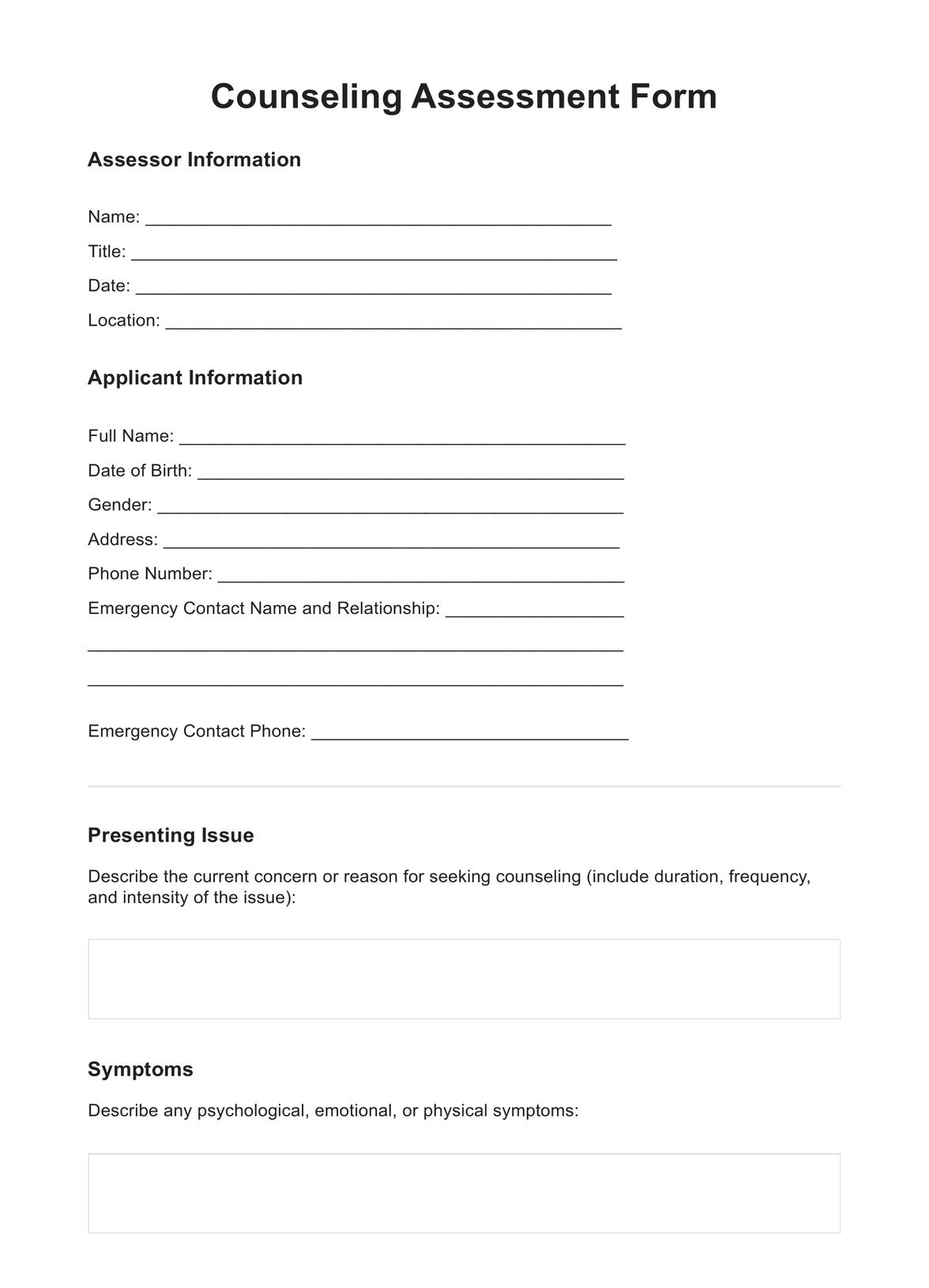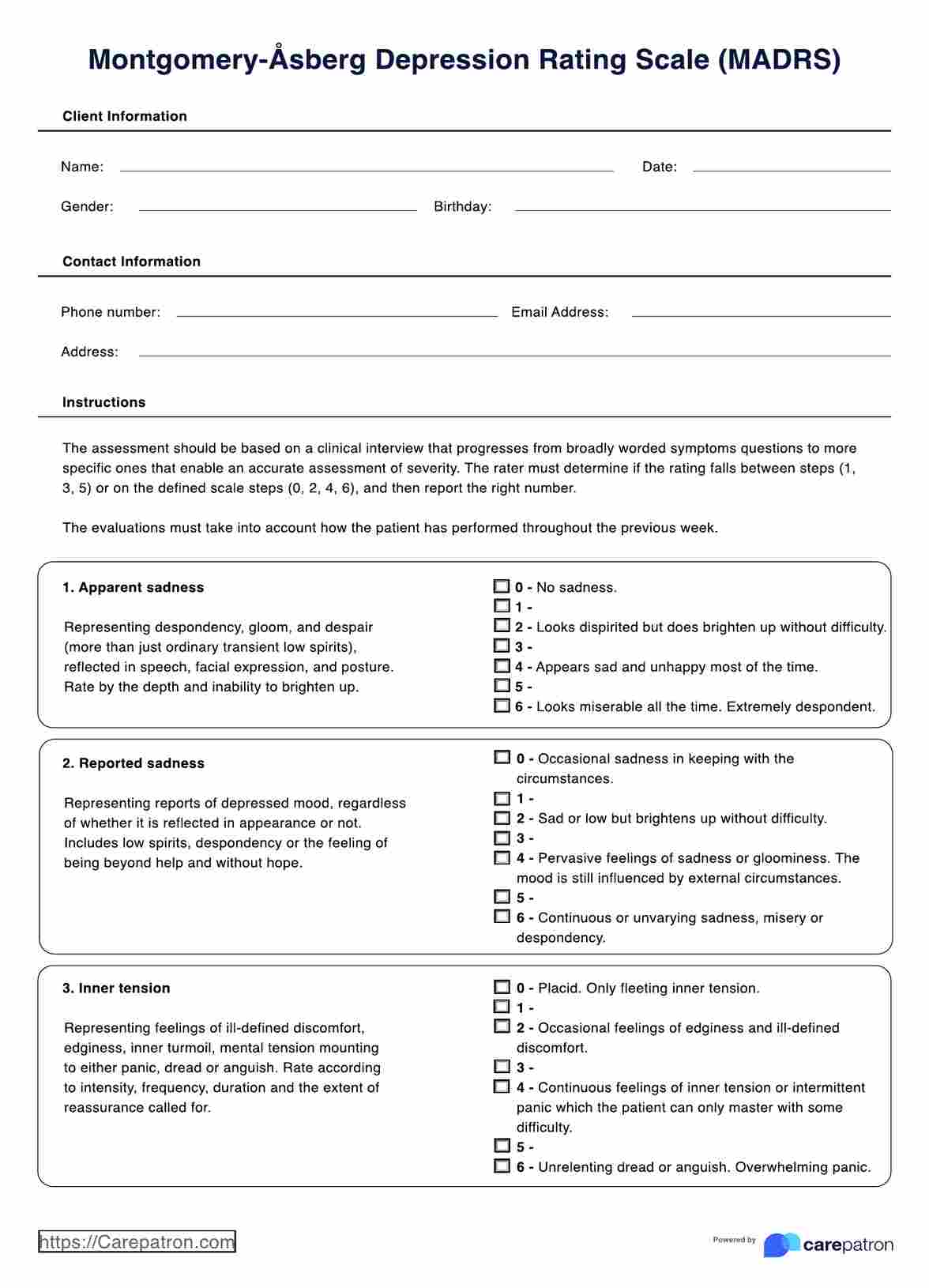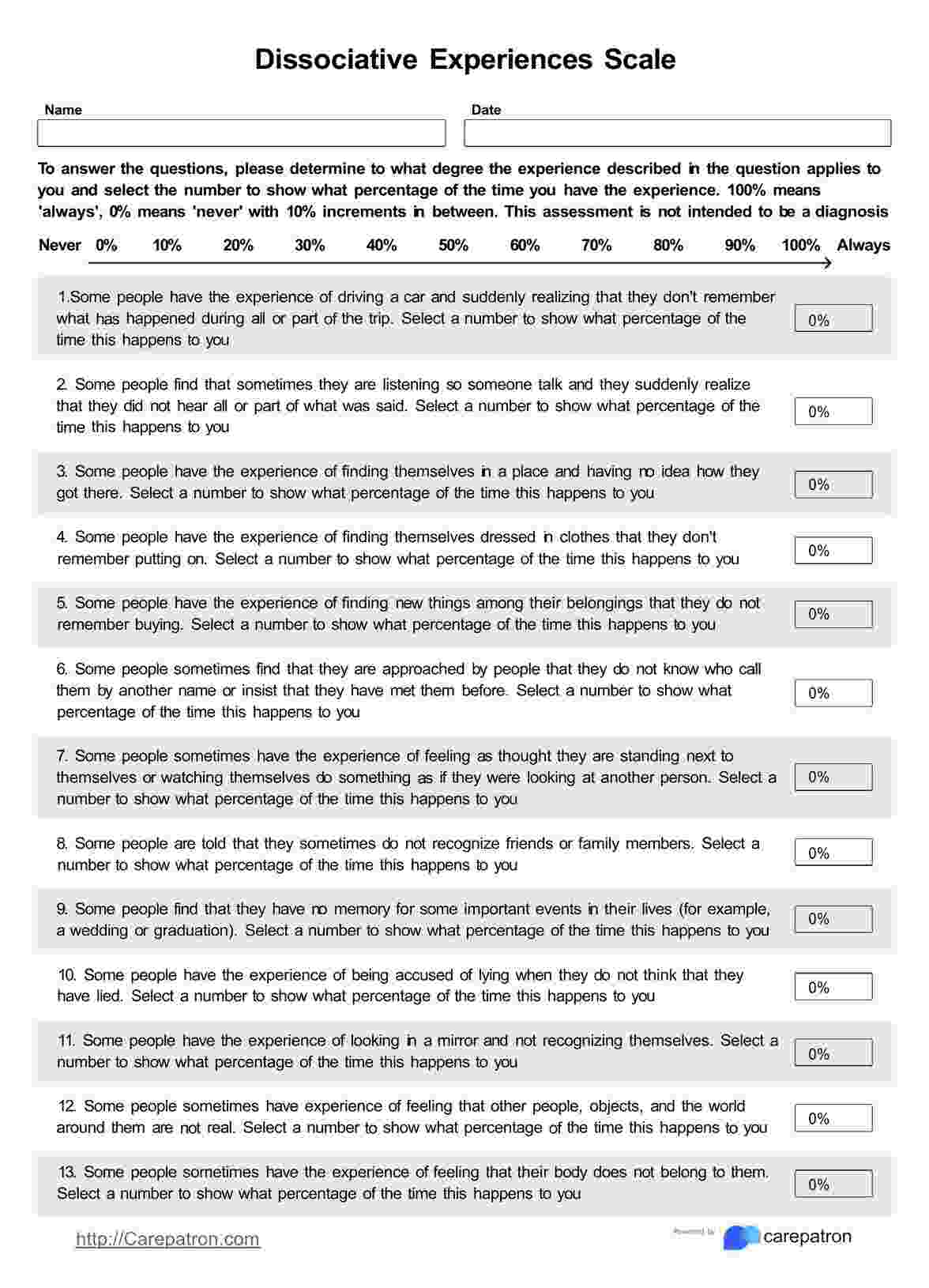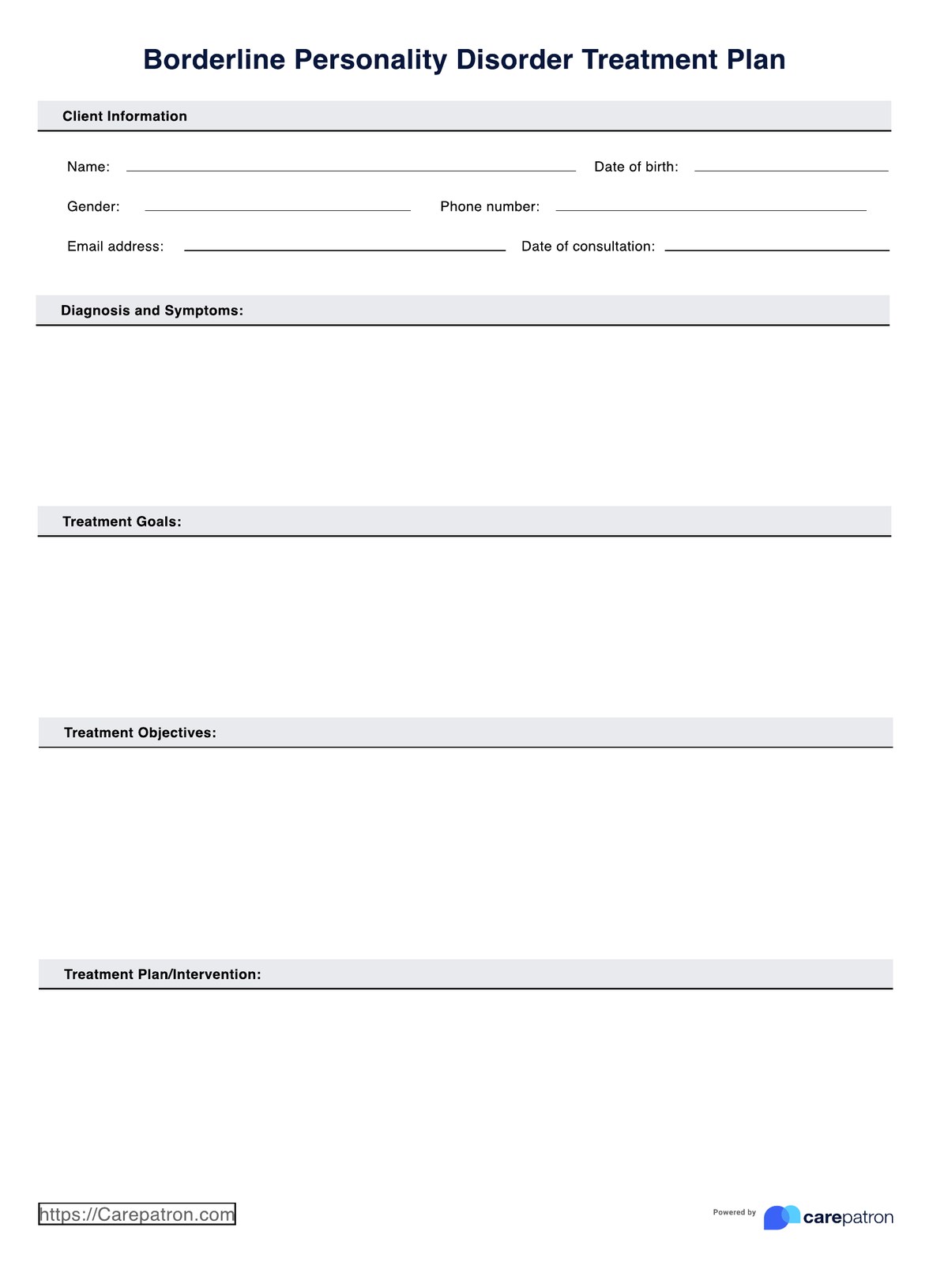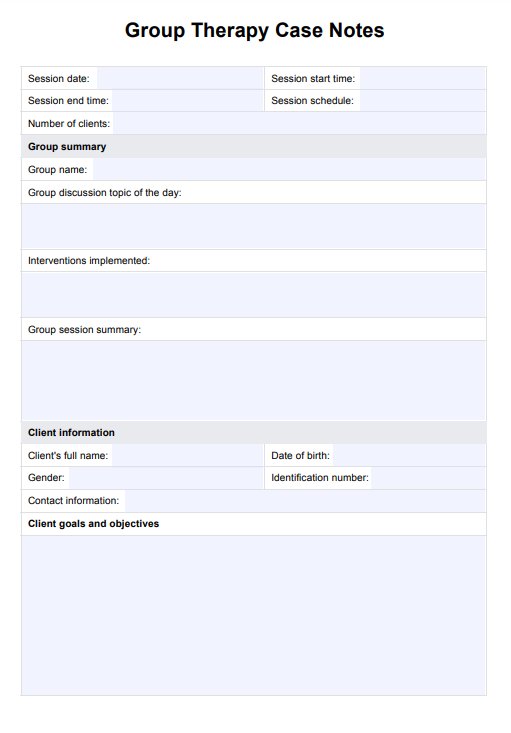Impulse Control Disorder Test
Explore the benefits and functionality of the Impulse Control Disorder Test with our free downloadable template. Get insights for better impulse management.


What is impulse control?
Impulse control is the ability to resist or delay an impulse, drive, or temptation to act. It involves self-regulation that allows individuals to think before acting and to forego an immediate desire for a long-term goal. Understanding impulse control is crucial for maintaining healthy relationships, achieving personal goals, and living a balanced life. Issues with impulse control can lead to problematic behaviors that negatively impact an individual's life and the lives of those around them.
Why is controlling our impulses important?
Good impulse control can improve relationships, academic and professional success, and overall well-being. It also plays a significant role in avoiding behaviors that could lead to mental health issues or disorders. Learning to control impulses is essential for personal development, mental health, and social functioning. It helps make thoughtful decisions, prevent regrettable actions, and manage emotions effectively.
Impulse Control Disorder Test Template
Impulse Control Disorder Test Example
What is impulse control disorder?
Impulse Control Disorder (ICD) encompasses a group of psychiatric disorders characterized by an inability to resist impulses to perform actions that could be harmful to oneself or others. These disorders are recognized in the Diagnostic and Statistical Manual of Mental Disorders (DSM) and include conditions such as conduct disorder, kleptomania, and pyromania. Individuals with ICDs often engage in these behaviors to relieve tension or because of an irresistible urge, despite understanding the negative consequences.
Symptoms and characteristics of impulse control disorder
Impulse Control Disorder (ICD) encompasses a range of problematic behaviors where an individual fails to resist impulses, drives, or temptations that may harm themselves or others. Key symptoms include:
- Frequent engagement in behaviors despite potential harm: Individuals may repeatedly perform actions that have the potential to harm themselves or others, often with awareness of these consequences.
- Increasing tension or arousal before committing the act: A noticeable build-up of tension or excitement occurs before acting on the impulse.
- The feeling of relief, pleasure, or gratification following the behavior: After acting on the impulse, the individual often experiences temporary relief or satisfaction.
- Struggles with remorse, guilt, or regret: Post-act, individuals might feel guilty, regretful, or distressed about their inability to control their impulses.
- Difficulty controlling behaviors despite a desire to stop: There's often a persistent desire to curb these impulses, but efforts to stop or control them are typically unsuccessful.
Characteristic behaviors can include, but are not limited to, pathological gambling, kleptomania (compulsive stealing), pyromania (fire-setting), and intermittent explosive disorder (physically aggressive or angry outbursts). These behaviors significantly impact an individual's daily functioning, relationships, and well-being.
What are the consequences of poor impulse control?
Unmanaged impulse control disorder can have profound consequences:
- Legal and financial troubles: Compulsive behaviors like gambling or stealing can lead to legal issues or financial ruin.
- Relationship strain: Aggression or deceit related to impulsive acts can severely damage personal and professional relationships.
- Health risks: Some impulsive behaviors, such as reckless driving or substance abuse, pose direct risks to physical health.
- Psychological distress: The cycle of impulse and regret can exacerbate feelings of shame, guilt, and low self-esteem, potentially leading to other mental health disorders.
- Social isolation: The stigma and misunderstanding surrounding ICD can lead to social withdrawal or isolation, further impacting mental health.
Early detection and management are crucial in mitigating these risks and enhancing the quality of life for those with ICDs.
How do mental healthcare professionals detect and diagnose this disorder?
Mental health professionals use a combination of interviews, psychological testing, and criteria from the DSM to diagnose impulse control disorders. They assess the individual's history of impulsive behavior, the impact of these behaviors on their life, and any co-occurring mental health conditions. A thorough evaluation is necessary for mental health professionals to differentiate ICD from other mental disorders and to develop an effective treatment plan.
What is an Impulse Control Disorder Test?
An Impulse Control Disorder Test is a tool used by healthcare professionals to assess the presence and severity of impulse control issues. It typically consists of a series of questions that help in evaluating the individual's tendencies towards impulsive behaviors, their ability to resist urges, and the consequences of their actions. This test can be an important step in diagnosing ICD and planning treatment.
How is this test scored?
The impulse control disorder quiz scoring involves evaluating the responses to determine the frequency and intensity of impulsive behaviors. High scores may indicate a significant problem with impulse control, while lower scores might suggest milder issues. The results help in understanding the individual's condition and tailoring interventions accordingly.
How does our Impulse Control Disorder Test template work?
Embarking on an evaluation journey with our Impulse Control Disorder Test template is akin to equipping yourself with a detailed map and compass before delving into the complex terrain of impulse control issues. This template is meticulously crafted to guide healthcare professionals through a structured exploration of the individual's behaviors, shedding light on the nuances of their impulses and repercussions.
- Initiate the journey - Begin by downloading our user-friendly template, a beacon to illuminate the path toward understanding impulse control disorders.
- Gather essentials - Enter detailed information regarding the individual's impulsive behaviors, historical context, and the consequential ripple effects. This step ensures that no stone is left unturned, precisely capturing the essence of their struggles.
- Navigate through - Utilize the template’s comprehensive sections to systematically assess and document impulsive actions' frequency, intensity, and triggers, akin to charting the waters of an unexplored ocean.
- Analyzing the terrain - This template aids in the qualitative and quantitative analysis of gathered data, paving the way for a nuanced understanding of the individual's condition, much like deciphering the contours and patterns of a complex landscape.
- Plotting the course forward - Armed with insights gleaned from the assessment, healthcare professionals can chart out a personalized treatment strategy, guiding the individual towards regaining control over their impulses and steering their life towards calmer waters.
Our Impulse Control Disorder Test template serves as a vital instrument in the hands of mental health professionals, enabling them to conduct thorough evaluations with ease and precision, ultimately fostering a deeper understanding and more effective management of impulse control disorders.
Next steps
After completing the Impulse Control Disorder Test, the next steps include reviewing the results with a healthcare professional, discussing potential diagnoses, and exploring treatment options. Treatment may involve therapy, medication, or a combination of both, depending on the severity of the disorder and the individual's specific needs.
What are the benefits of this test?
The benefits of taking our free Impulse Control Disorder Test include:
Early identification of impulse control issues
Taking an Impulse Control Disorder Test can help identify impulse control issues early, which is crucial for managing the condition effectively. Early detection can prevent the escalation of impulsive behaviors into more severe or problematic patterns, reducing the potential for negative consequences in the individual's personal and social life.
Enhanced self-awareness
The test promotes self-awareness by helping individuals recognize their patterns of impulsive behavior. This awareness is the first step toward change, as it allows people to understand the triggers and contexts that lead to impulsive actions. With this knowledge, individuals can use strategies to control their impulses more effectively.
Better understanding of the need for professional help
By highlighting the severity and impact of impulsive behaviors on daily life, the test underscores the importance of seeking professional help. Understanding the extent of the issue can motivate individuals to access mental health services and support, which are vital for overcoming impulse control disorders.
Guidance for personalized treatment plans
The detailed insights the test provides into an individual's impulsive behaviors and their effects enable healthcare professionals to create personalized treatment plans. These plans can address specific challenges and needs, incorporating therapies and interventions most likely to lead a person to improvement and recovery.
Improved quality of life
Ultimately, the benefits of taking an Impulse Control Disorder Test converge on improving the individual's overall quality of life. By facilitating early intervention, increasing self-awareness and empathy, and supporting personalized treatment, the test can help individuals control their impulses, leading to healthier decision-making, better relationships, and more fulfilling life.
Impulse control disorder treatment
Treatment for impulse control disorders typically involves cognitive-behavioral therapy, which helps individuals understand their impulses, develop coping strategies, and make positive changes in their behavior. In some cases, medication may be prescribed to manage symptoms. Support from family and therapy groups can also benefit the treatment process.
Commonly asked questions
The exact cause of ICD is unknown, but it's believed to be a combination of genetic, neurological, and environmental factors. Brain chemistry imbalances, family history of mental health issues, and exposure to stressful or traumatic events may increase the risk.
Yes, ICD can be treated through a combination of psychotherapy, medication, and lifestyle changes. Cognitive-behavioral therapy is particularly effective in helping individuals understand their impulses and develop healthier coping mechanisms.
Untreated ICD can lead to significant personal, social, and legal problems, including financial debt, relationship issues, and criminal charges. It can also co-occur with other mental health disorders, complicating the treatment process.

.jpg)
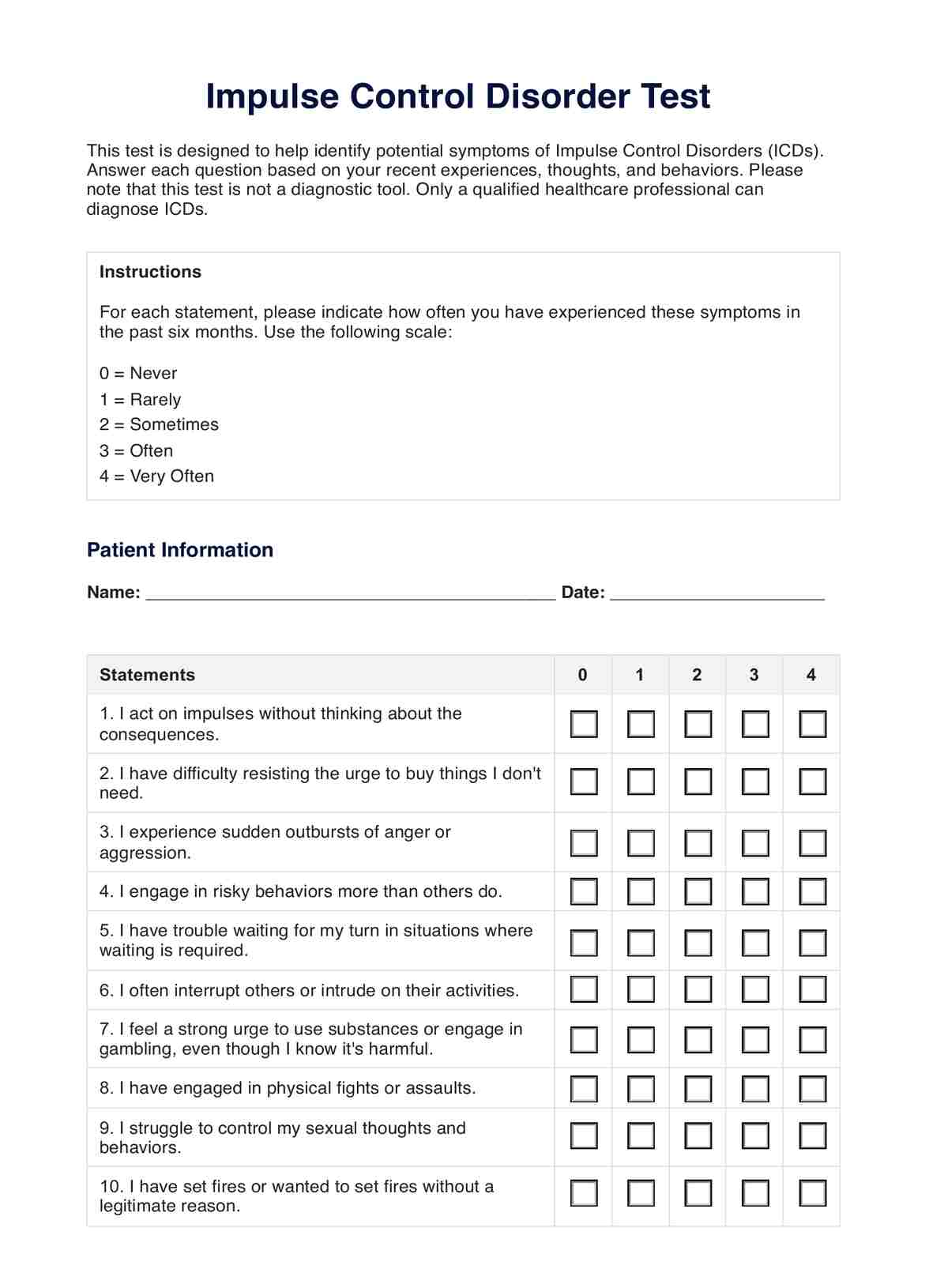
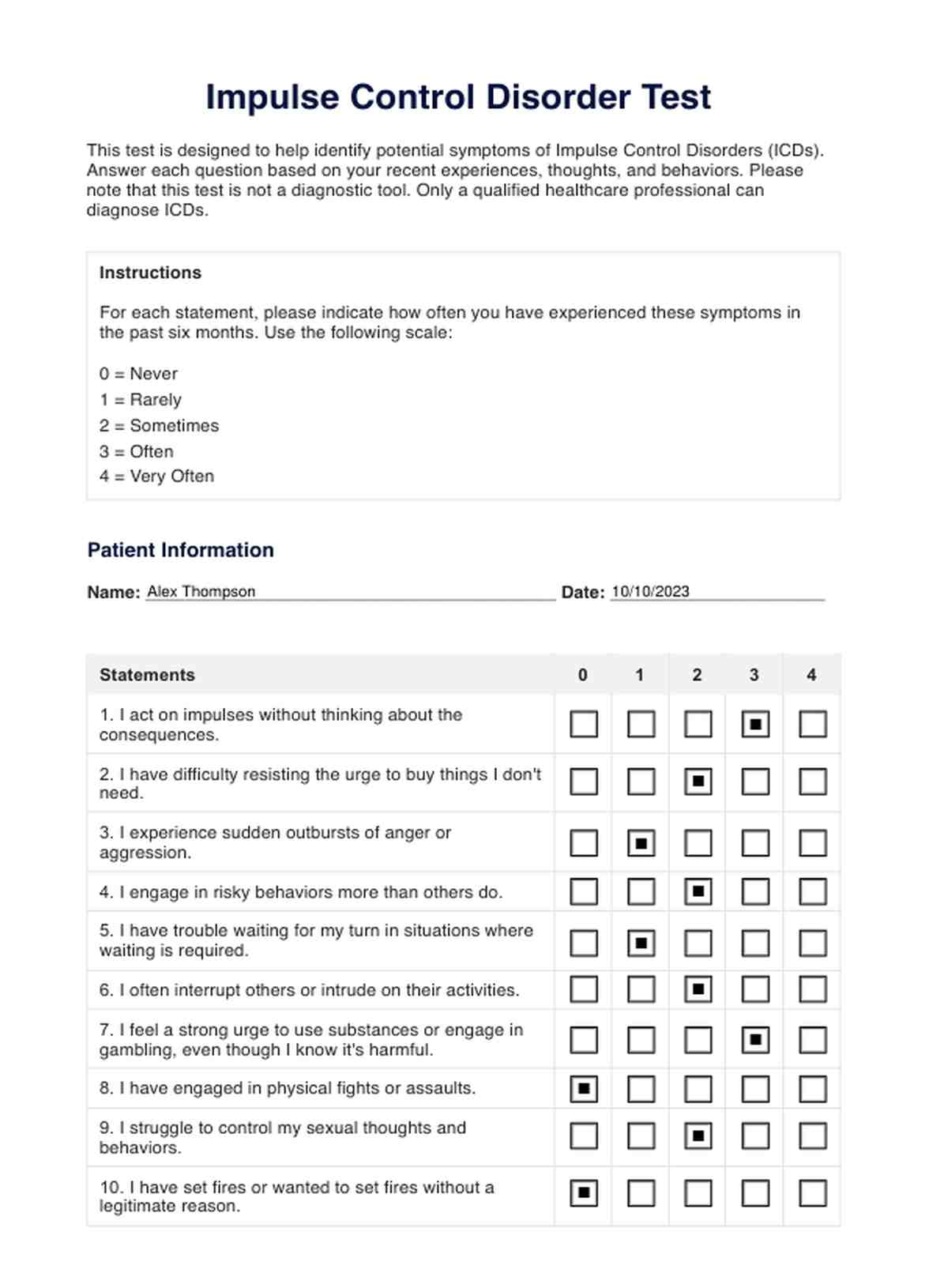

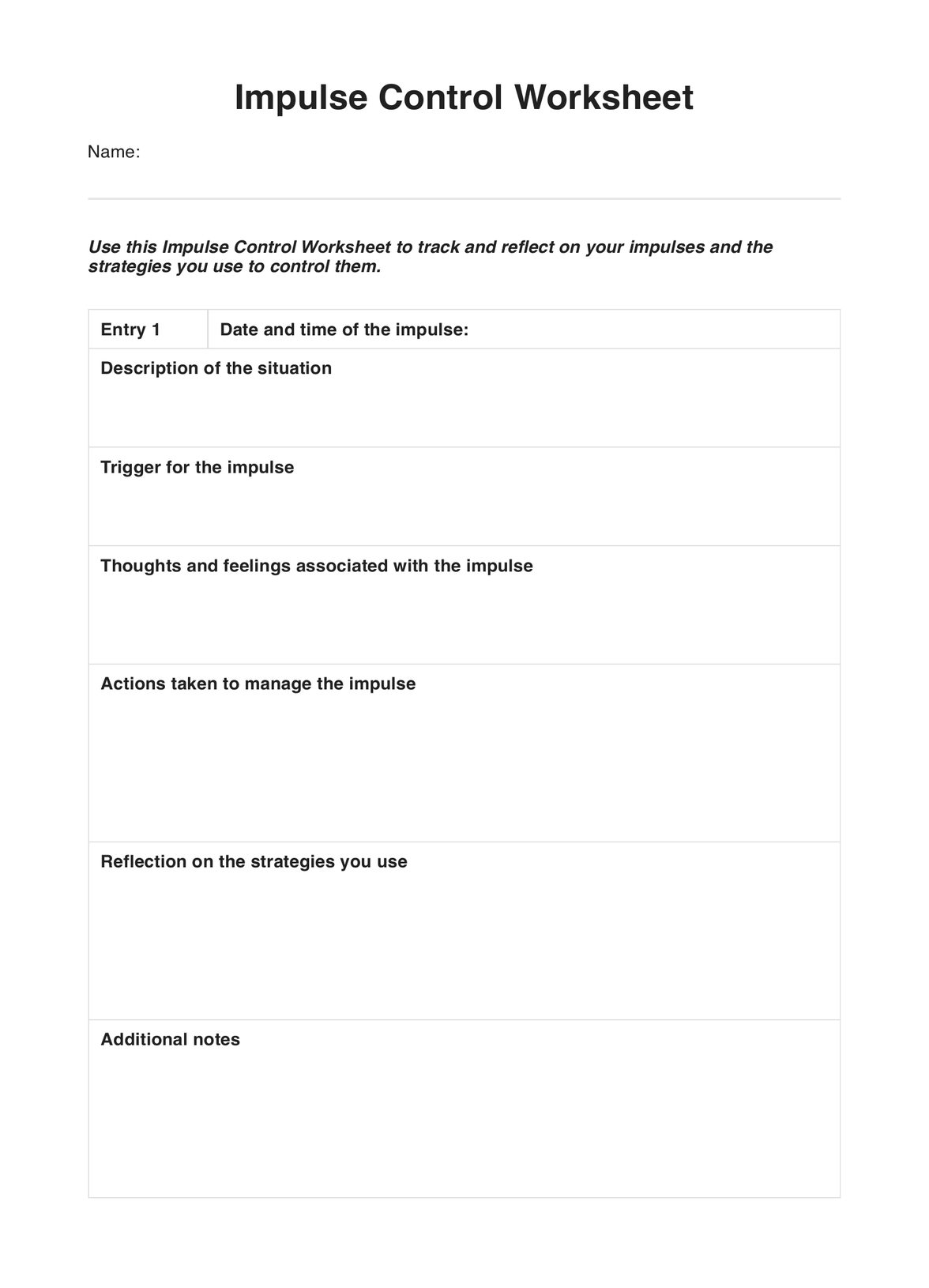
















-template.jpg)



















































































